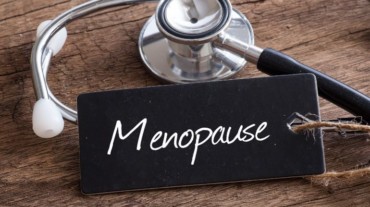
Menopause is a normal and a manageable part of a woman’s life. It is a stage in a woman’s life that marks the end of the menstrual cycle. If you stop menstruating and have had no periods for 12 months, you’ve entered the menopausal stage. Most often, it occurs when a woman is between 45 and 50 years. But every woman’s menopause is different, and so are its symptoms.
The symptoms of menopause usually start when a woman’s estrogen levels begin to drop. It typically happens three to five years before menopause starts; this is called perimenopause. Perimenopause can start up to 10 years before you enter menopause. Sometimes, people get confused between menopause and perimenopause.
Perimenopausal symptoms can last for up to four years on average.

The answer is not simple, because perimenopause can last for up to 10 years. On the other hand, you enter menopause when you cross the 12-month mark, without a menstrual period. If you’ve crossed the 12-month mark without experiencing a period, you’re now postmenopausal. Don’t be surprised!
According to a study published in JAMA, menopause symptoms last for an average of 4.5 years, following a person’s last period and 7.4 years in total. But you are premenopausal, until you cross the 12-month mark without a menstrual period.
These are some symptoms of menopause:
In the perimenopause stage, you might experience breast tenderness, heavier or lighter periods, dry skin, eyes, or mouth, and worsening premenstrual syndrome (PMS). Sorry to break it to you, but these all symptoms can continue well into your postmenopausal years as well. Also, weight gain, headaches, racing heart, hair loss, as well as muscle and joint pain are common.

You can experience any of these additional symptoms throughout your perimenopause, but hot flashes typically occur at the onset of perimenopause.
Menopausal symptoms can be treated or managed in a number of ways, mainly through medication and lifestyle changes. Lifestyle changes include avoiding spicy foods, caffeine, smoking, alcohol, and stress, because all these activities can trigger hot flashes. Eating a healthy diet and staying physically active can help with several menopausal symptoms, including weight gain and mood swings.
But if your menopausal symptoms cause anxiety or have a negative impact on your quality of life, please discuss them with your doctor and take care!
Select Topics of your interest and let us customize your feed.
PERSONALISE NOWGet Latest Updates on Preventive Care, Family Care, Reproductive Care, Self Care